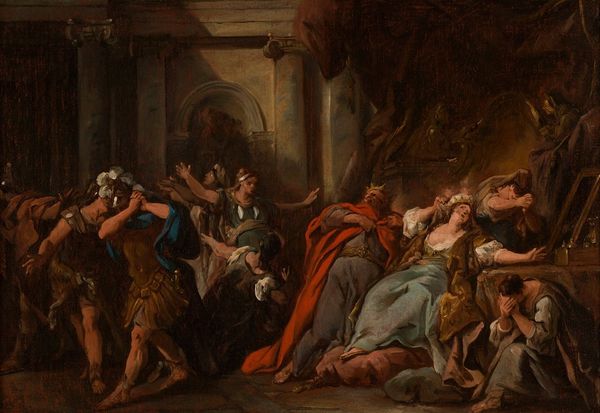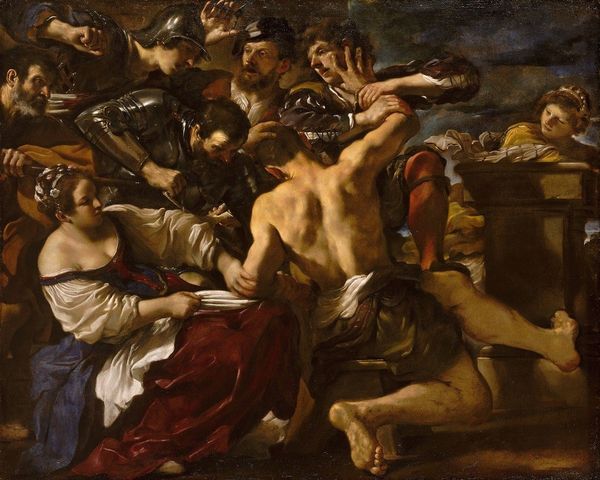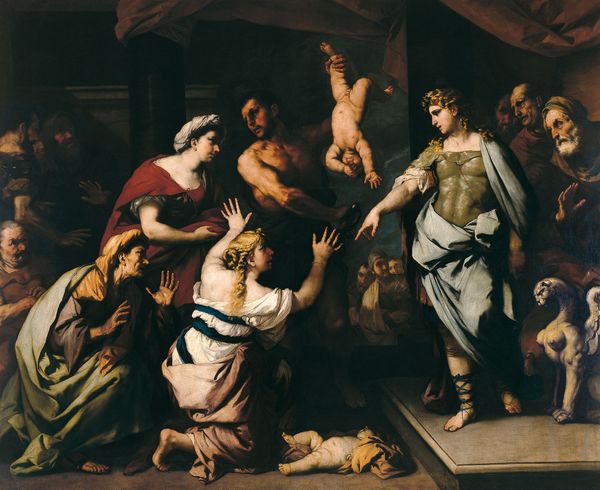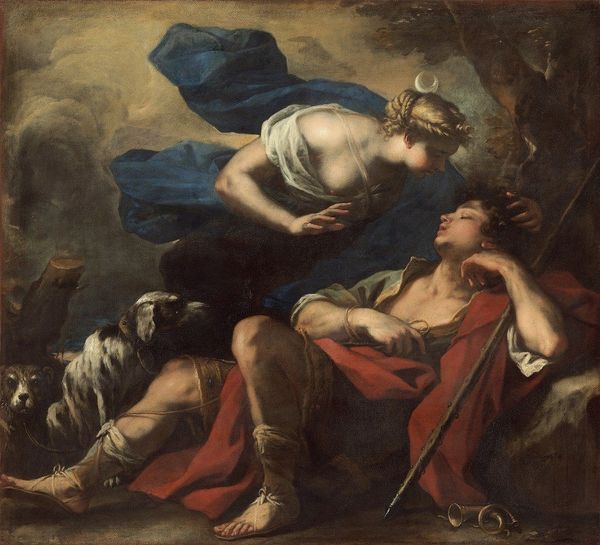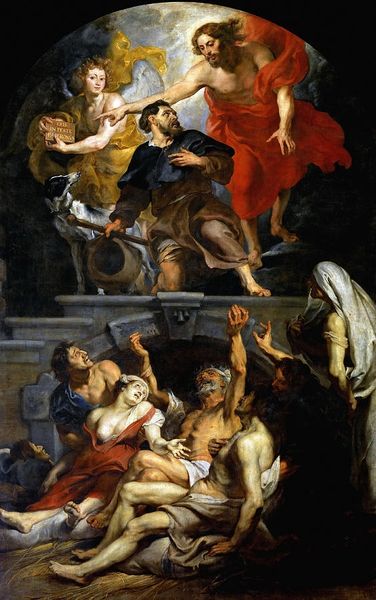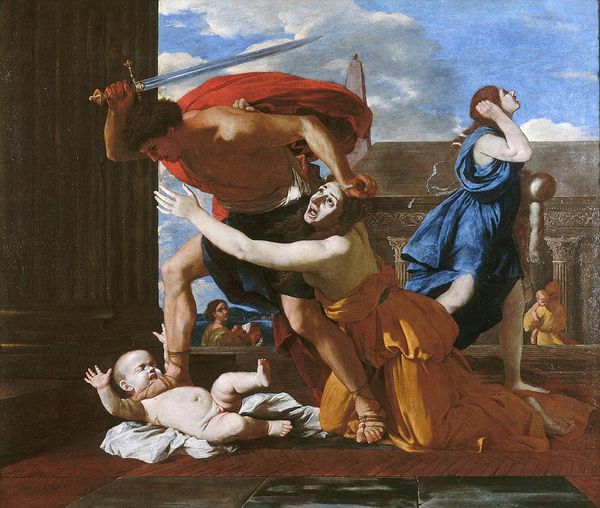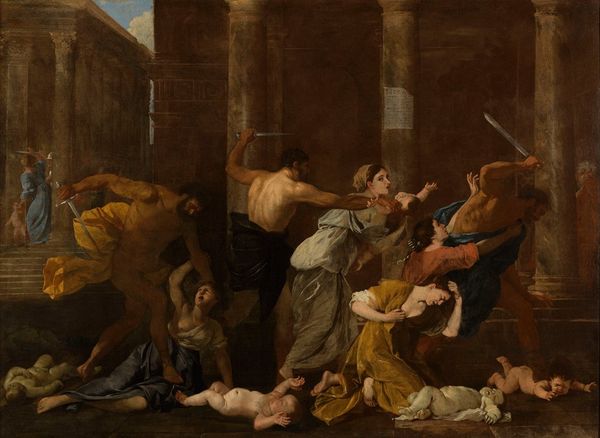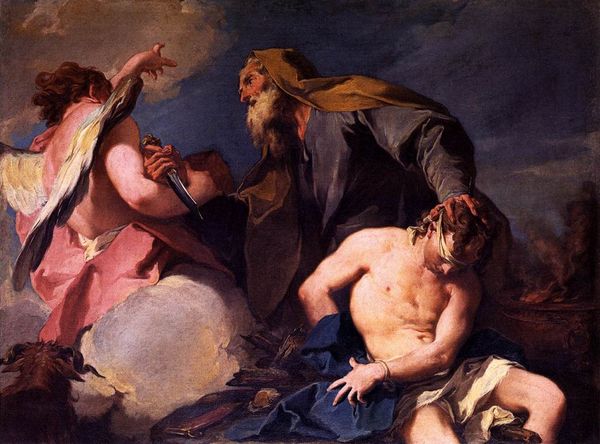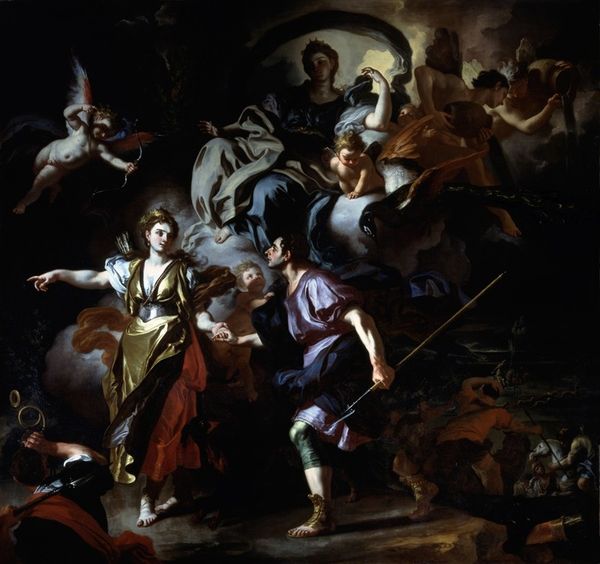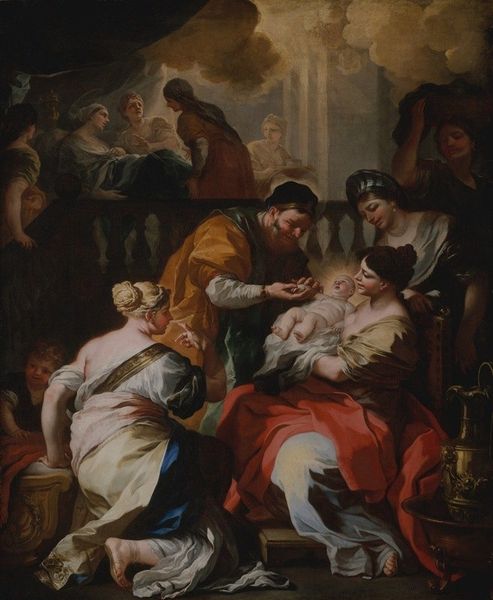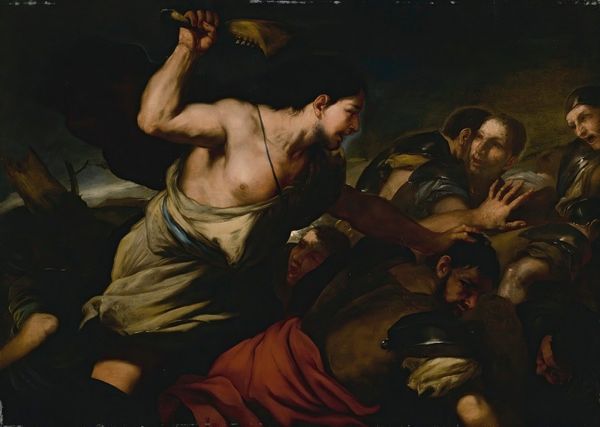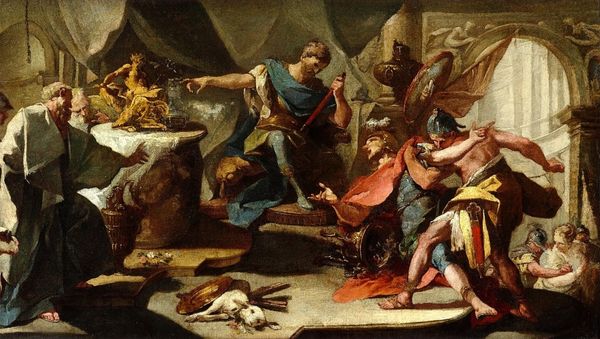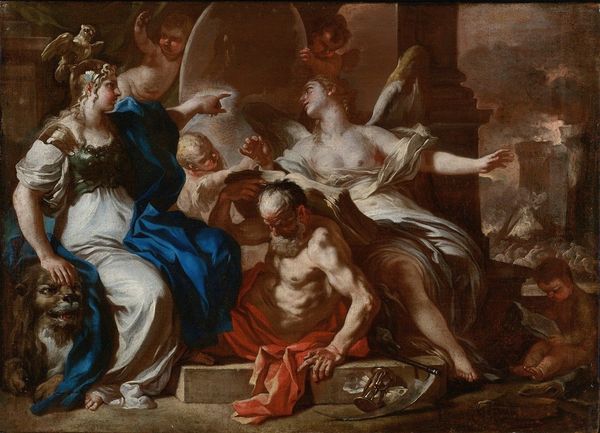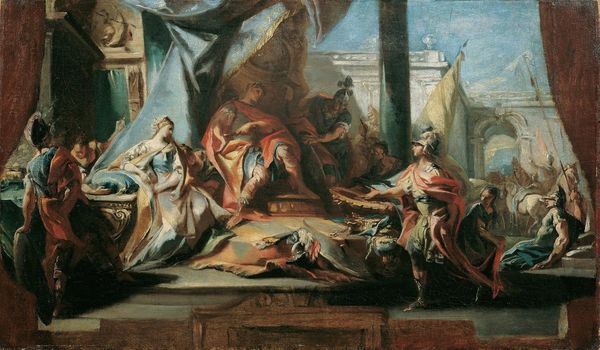
oil-paint
#
narrative-art
#
baroque
#
oil-paint
#
figuration
#
oil painting
#
mythology
#
history-painting
Copyright: Public Domain: Artvee
Editor: This is Francesco Solimena's "Death of Messalina," painted around 1704 using oil paint. The scene is dramatic and chaotic; everyone seems to be reacting to the central figure about to be stabbed. What kind of statement do you think Solimena is making with this scene? Curator: I see this painting as participating in a long history of representing powerful women in moments of extreme crisis, often focusing on their downfall as a cautionary tale. Messalina, the wife of the Roman Emperor Claudius, was known for her alleged licentiousness, and her execution became a popular subject. The question is, why did Solimena choose this moment, and what does his specific portrayal suggest about the sociopolitical climate of his time? Notice how the figures around Messalina express a range of emotions, perhaps hinting at conflicting interpretations of her life and death within the cultural consciousness. Editor: So it's less about the individual story of Messalina and more about what her story represented to society? Curator: Precisely! The Baroque era was fascinated with grand narratives and theatrical displays of emotion. Solimena uses this style to heighten the drama and capture public interest. But what interests me is how this moment also reflects power dynamics, with men enacting violence upon a woman who allegedly abused her own power. It reinforces a patriarchal narrative while simultaneously displaying a powerful woman's vulnerability. Do you think the painting could be interpreted as a critique or reinforcement of that patriarchal structure? Editor: I hadn't thought of it that way. It seems there are many ways to interpret Solimena's intent here. Thanks for your insights into the power dynamics. Curator: Indeed, it's through these visual stories that historical anxieties and power structures are perpetuated, or, sometimes, subtly questioned. Always look deeper than the immediate narrative.
Comments
No comments
Be the first to comment and join the conversation on the ultimate creative platform.
